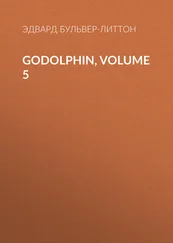Эдвард Бульвер-Литтон - Godolphin, Complete
Здесь есть возможность читать онлайн «Эдвард Бульвер-Литтон - Godolphin, Complete» — ознакомительный отрывок электронной книги совершенно бесплатно, а после прочтения отрывка купить полную версию. В некоторых случаях можно слушать аудио, скачать через торрент в формате fb2 и присутствует краткое содержание. Жанр: foreign_prose, literature_19, Европейская старинная литература, foreign_antique, на английском языке. Описание произведения, (предисловие) а так же отзывы посетителей доступны на портале библиотеки ЛибКат.
- Название:Godolphin, Complete
- Автор:
- Жанр:
- Год:неизвестен
- ISBN:нет данных
- Рейтинг книги:4 / 5. Голосов: 1
-
Избранное:Добавить в избранное
- Отзывы:
-
Ваша оценка:
- 80
- 1
- 2
- 3
- 4
- 5
Godolphin, Complete: краткое содержание, описание и аннотация
Предлагаем к чтению аннотацию, описание, краткое содержание или предисловие (зависит от того, что написал сам автор книги «Godolphin, Complete»). Если вы не нашли необходимую информацию о книге — напишите в комментариях, мы постараемся отыскать её.
Godolphin, Complete — читать онлайн ознакомительный отрывок
Ниже представлен текст книги, разбитый по страницам. Система сохранения места последней прочитанной страницы, позволяет с удобством читать онлайн бесплатно книгу «Godolphin, Complete», без необходимости каждый раз заново искать на чём Вы остановились. Поставьте закладку, и сможете в любой момент перейти на страницу, на которой закончили чтение.
Интервал:
Закладка:
“Pooh,” said Lady Delmour, turning away her head. Now, that pooh is a very significant word. On the lips of a man of business, it denotes contempt for romance; on the lips of a politician it rebukes a theory. With that monosyllable, a philosopher massacres a fallacy: by those four letters a rich man gets rid of a beggar. But in the rosy mouth of a woman the harshness vanishes, the disdain becomes encouragement. “Pooh!” says the lady when you tell her she is handsome; but she smiles when she says it. With the same reply she receives your protestation of love, and blushes as she receives. With men it is the sternest, with women the softest, exclamation in the language.
“Pooh!” said Lady Delmour, turning away her head:—and Godolphin was in singular spirits. What a strange thing that we should call such hilarity from our gloom! The stroke induces the flash; excite the nerves by jealousy, by despair, and with the proud you only trace the excitement by the mad mirth and hysterical laughter it creates. Godolphin was charming comme un amour, and the young countess was delighted with his gallantry.
“Did you ever love?” asked she, tenderly, as they sat alone after supper.
“Alas, yes!” said he.
“How often?”
“Read Marmontel’s story of the Four Phials: I have no other answer.”
“Oh, what a beautiful tale that is! The whole history of a man’s heart is contained in it.”
While Godolphin was thus talking with Lady Delmour, his whole soul was with Constance; of her only he thought, and on her he thirsted for revenge. There is a curious phenomenon in love, showing how much vanity has to do with even the best species of it; when, for your mistress to prefer another, changes all your affection into hatred:—is it the loss of the mistress, or her preference to the other? The last, to be sure: for if the former, you would only grieve—but jealousy does not make you grieve, it makes you enraged; it does not sadden, it stings. After all, as we grow old, and look back on the “master passion,” how we smile at the fools it made of us—at the importance we attach to it—of the millions that have been governed by it! When we examine the passion of love, it is like examining the character of some great roan; we are astonished to perceive the littlenesses that belong to it. We ask in wonder, “How come such effects from such a cause?”
Godolphin continued talking sentiment with Lady Delmour, until her lord, who was very fond of his carriage horses, came up and took her away; and then, perhaps glad to be relieved, Percy sauntered into the ballroom, where, though the crowd was somewhat thinned, the dance was continued with that spirit which always seems to increase as the night advances.
For my own part, I now and then look late in at a ball as a warning and grave memento of the flight of time. No amusement belongs of right so essentially to the young, in their first youth,—to the unthinking, the intoxicated,—to those whose blood is an elixir.
“If Constance be woman,” said Godolphin to himself, as he returned to the ballroom, “I will yet humble her to my will. I have not learned the science so long, to be now foiled in the first moment I have seriously wished to triumph.”
As this thought inspired and excited him, he moved along at some distance from, but carefully within the sight of Constance. He paused by Lady Margaret Midgecombe. He addressed her. Notwithstanding the insolence and the ignorance of the Duchess of Winstoun, he was well received by both mother and daughter. Some persons there are, in all times and in all spheres, who command a certain respect, bought neither by riches, rank, nor even scrupulous morality of conduct. They win it by the reputation that talent alone can win them, and which yet is not always the reputation of talent. No man, even in the frivolous societies of the great, obtains homage without certain qualities, which, had they been happily directed, would have conducted him to fame. Had the attention of a Grammont, or of a –, been early turned towards what ought to be the objects desired, who can doubt that, instead of the heroes of a circle, they might have been worthy of becoming names of posterity?
Thus the genius of Godolphin had drawn around him an eclat which made even the haughtiest willing to receive and to repay his notice; and Lady Margaret actually blushed with pleasure when he asked her to dance. A foreign dance, then only very partially known in England, had been called for: few were acquainted with it,—those only who had been abroad; and as the movements seemed to require peculiar grace of person, some even among those few declined, through modesty, the exhibition.
To this dance Godolphin led Lady Margaret. All crowded round to see the performers; and, as each went through the giddy and intoxicating maze, they made remarks on the awkwardness or the singularity, or the impropriety of the dance. But when Godolphin began, the murmurs changed. The slow and stately measure then adapted to the steps, was one in which the graceful symmetry of his person might eminently display itself. Lady Margaret was at least as well acquainted with the dance: and the couple altogether so immeasurably excelled all competitors, that the rest, as if sensible of it, stopped one after the other; and when Godolphin, perceiving that they were alone, stopped also, the spectators made their approbation more audible than approbation usually is in polished society.
As Godolphin paused, his eyes met those of Constance. There was not there the expression he had anticipated there was neither the anger of jealousy, nor the restlessness of offended vanity, nor the desire of conciliation, visible in those large and speaking orbs. A deep, a penetrating, a sad inquiry seemed to dwell in her gaze,—seemed anxious to pierce into his heart, and to discover whether there she possessed the power to wound, or whether each had been deceived: so at least seemed that fixed and melancholy intenseness of look to Godolphin. He left Lady Margaret abruptly: in an instant he was by the side of Constance.
“You must be delighted with this evening,” said he, bitterly: “wherever I go I hear your praises: every one admires you; and he who does not admire so much as worship you, he alone is beneath your notice. He—born to such shattered fortunes,—he indeed might never aspire to that which titled and wealthy idiots deem they may command, —the hand of Constance Vernon.”
It was with a low and calm tone that Godolphin spoke. Constance turned deadly pale: her frame trembled; but she did not answer immediately. She moved to a seat retired a little from the busy crowd; Godolphin followed and sat himself beside her; and then, with a slight effort, Constance spoke.
“You heard what was said, Mr. Godolphin, and I grieve to think you did. If I offended you, however, forgive me, I pray you; I pray sincerely—warmly. God knows I have suffered myself enough from idle words, and from the slighting opinion with which this hard world visits the poor, not to feel deep regret and shame if I wound, by like means, another, more especially”—Constance’s voice trembled,—“more especially you! ”
As she spoke, she turned her eyes on Godolphin, and they were full of tears. The tenderness of her voice, her look, melted him at once. Was it to him, indeed, that the haughty Constance addressed the words of kindness and apology?—to him whose intrinsic circumstances she had heard described as so unworthy of her, and, his reason told him, with such justice?
“Oh, Miss Vernon!” said he, passionately; “Miss Vernon—Constance—dear, dear Constance! dare I call you so? hear me one word. I love you with a love which leaves me no words to tell it. I know my faults, my poverty, my unworthiness; but—but—may I—may I hope?”
Читать дальшеИнтервал:
Закладка:
Похожие книги на «Godolphin, Complete»
Представляем Вашему вниманию похожие книги на «Godolphin, Complete» списком для выбора. Мы отобрали схожую по названию и смыслу литературу в надежде предоставить читателям больше вариантов отыскать новые, интересные, ещё непрочитанные произведения.
Обсуждение, отзывы о книге «Godolphin, Complete» и просто собственные мнения читателей. Оставьте ваши комментарии, напишите, что Вы думаете о произведении, его смысле или главных героях. Укажите что конкретно понравилось, а что нет, и почему Вы так считаете.












